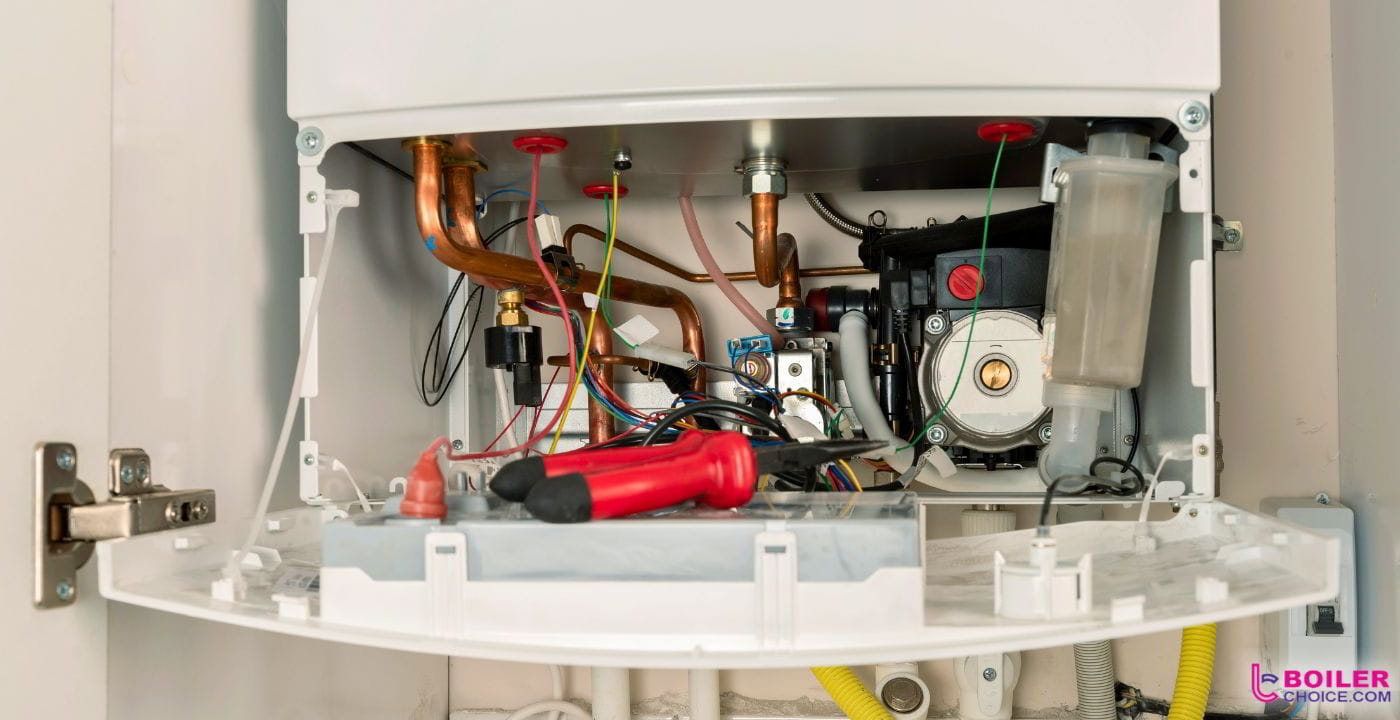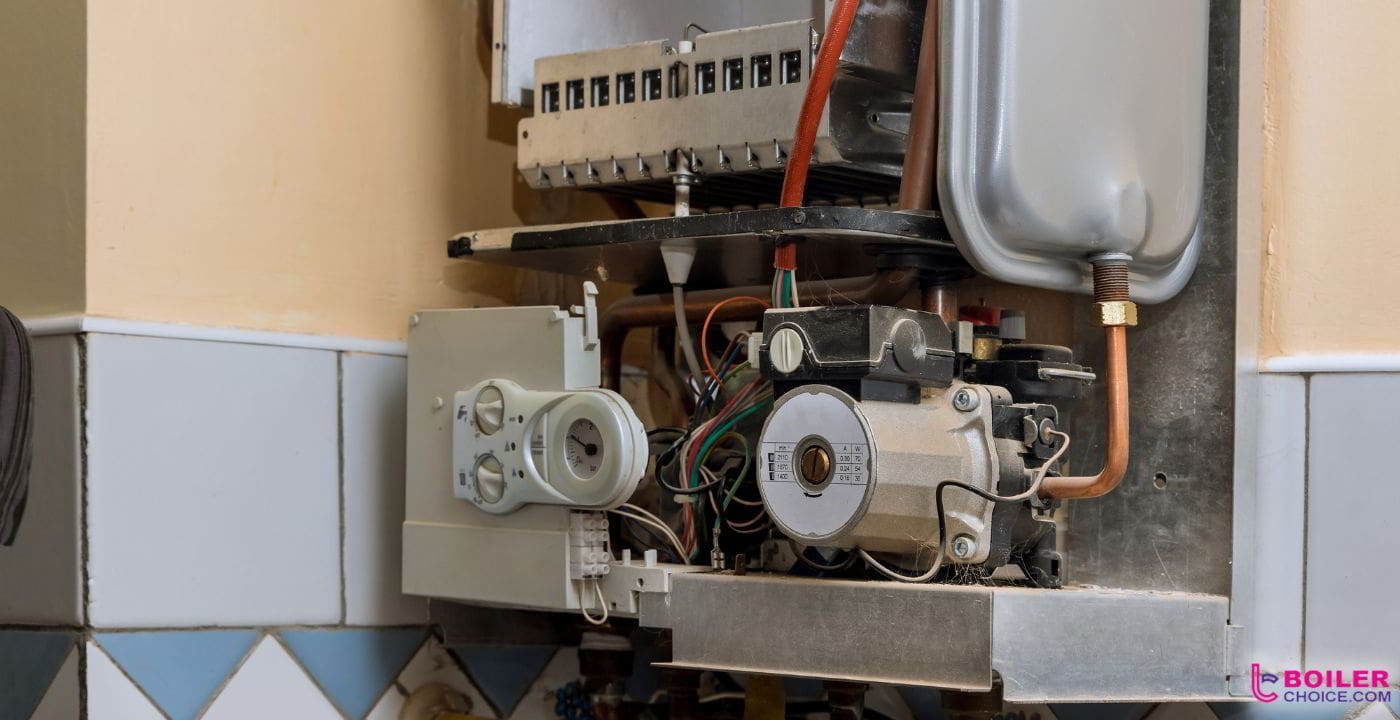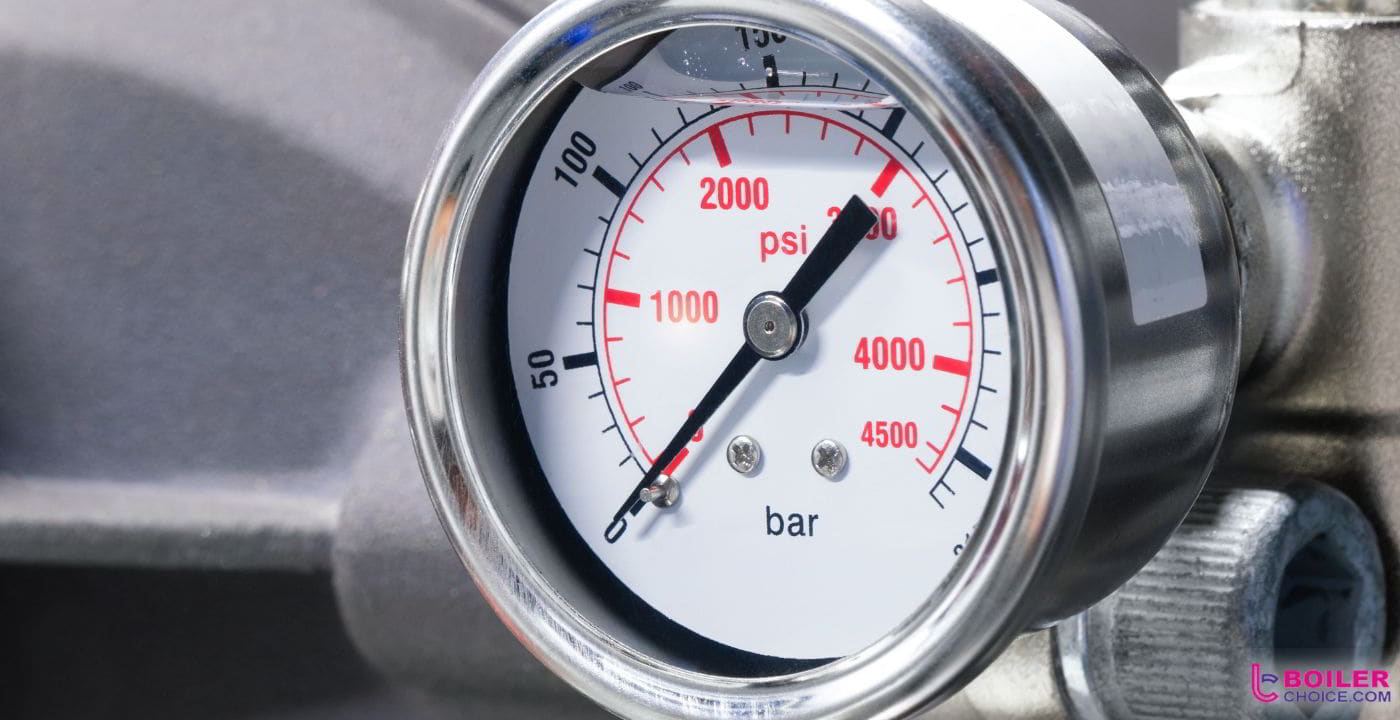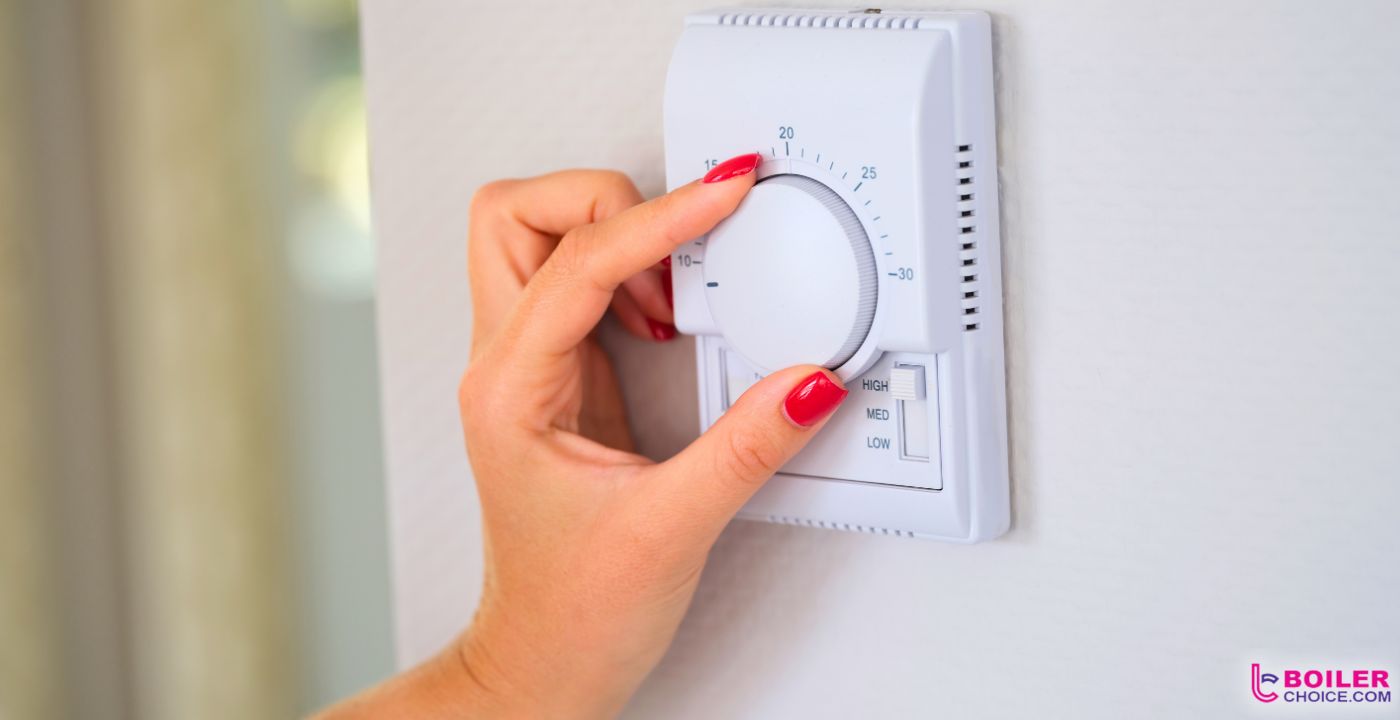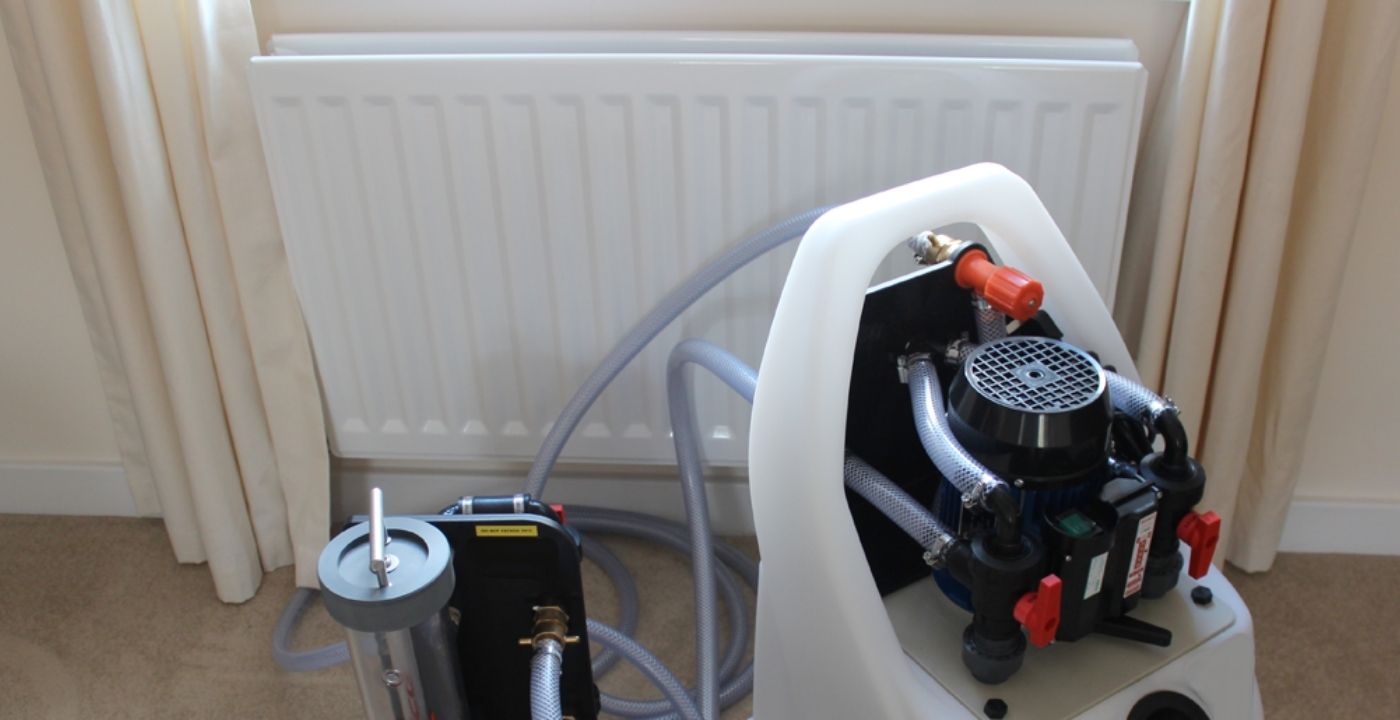
Key Takeaways
- A powerflush is a comprehensive cleaning process for your boiler and heating system, targeting the removal of sludge, rust and debris that accumulate over time.
- Regular power flushing can improve the efficiency of your central heating system, potentially leading to cost savings and a longer lifespan for your boiler.
- While a power flush is not a DIY-friendly task due to its technical nature, it is a standard procedure performed by professional Gas Safe engineers.
ℹ A build up of sludge and debris is one of the common causes of high boiler pressure.
If you are considering a power flush because of high boiler pressure check out our guide Boiler Keeps Gaining Pressure? Causes and Fixes to make sure you are addressing all the potential issues.
What is Power Flushing?
Power flushing is a specialised cleaning process that targets your central heating system, including your boiler.
It works by injecting a potent mixture of chemicals into your heating system under high velocity, but low pressure, effectively removing accumulated sludge, rust, and debris.
The chemicals commonly used in a powerflush include a descaler to remove limescale, a corrosion inhibitor to prevent rust, and a sludge cracker to break down thick sludge or crud.
This operation provides an intense deep-clean, enhancing the overall performance and efficiency of your heating system.
The Benefits of Power Washing
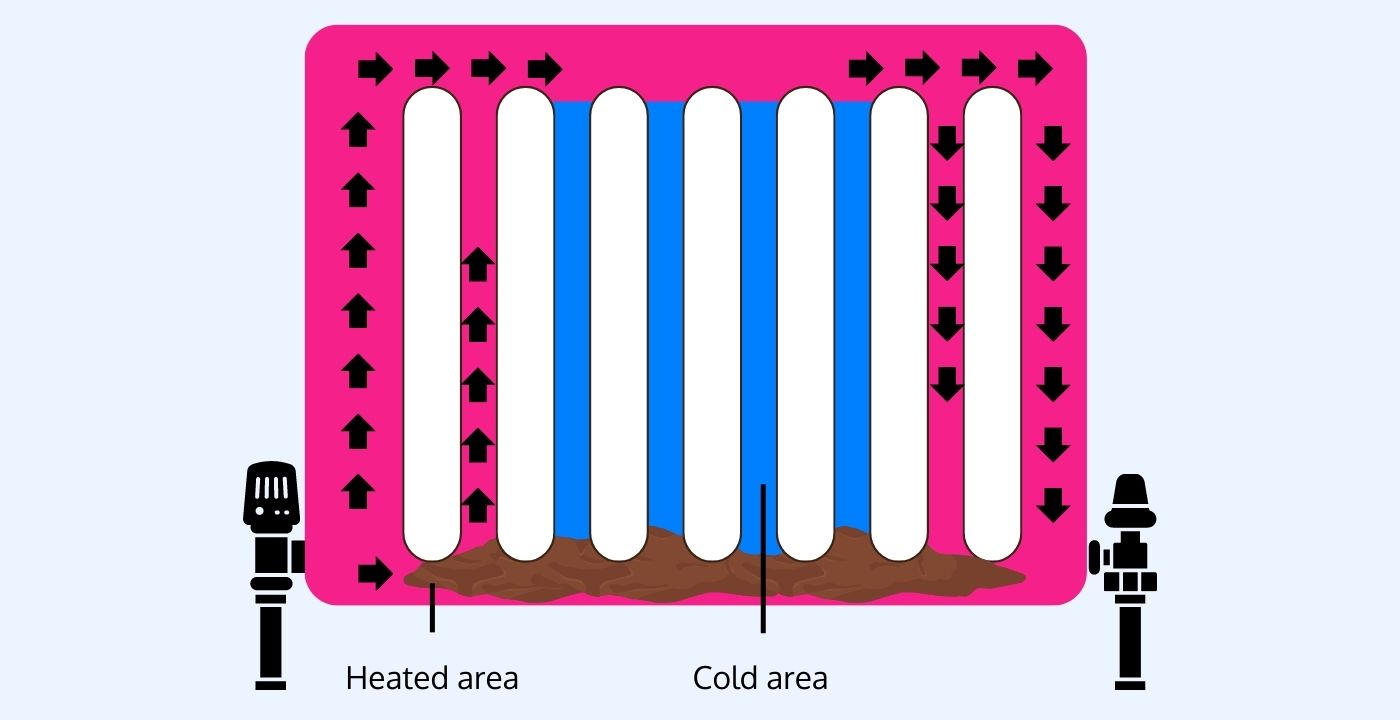
Undertaking a power flush for your heating system offers numerous advantages. Here are the most notable ones:
Efficiency Improvement
By removing unwanted blockages, a power flush allows water to flow freely through the system.
This can improve the efficiency of your heating, providing quicker warmth and potentially leading to cost savings on your energy bills.
Increased Lifespan
Regular power flushing can prolong the lifespan of your boiler and heating system components.
The process eliminates corrosive sludge and rust, both of which can cause damage over time.
Improved Heating Performance
After a powerflush, you should find your radiators heat up quicker and deliver a more consistent temperature across their surfaces.
This is because the removal of blockages and sludge helps to eliminate common issues such as cold spots.
Reduced Noise
If your boiler or radiators have become noisier over time, a powerflush may quieten them down.
Noise is often a symptom of inefficiency caused by internal blockages.
Signs that a Power Flush May be Needed
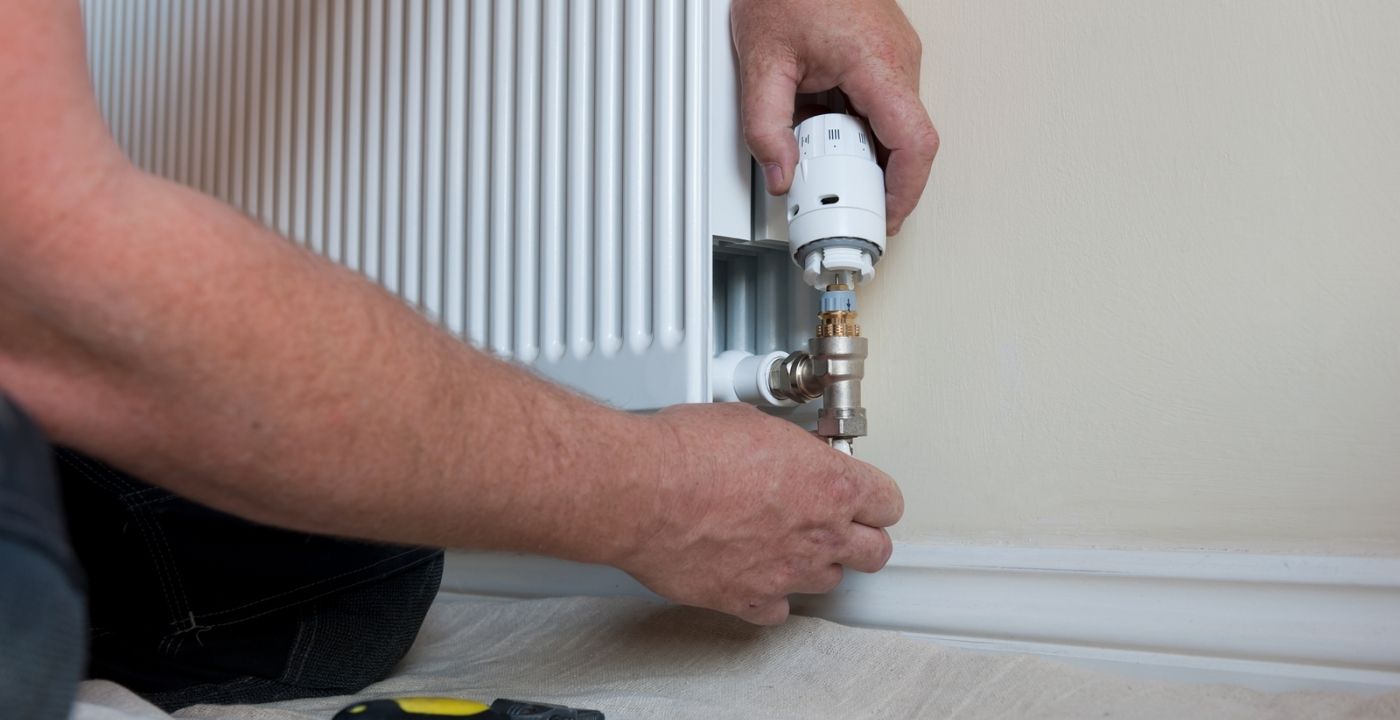
There are several tell-tale signs that your central heating system might benefit from a powerflush. These include:
- Radiators requiring frequent bleeding
- Radiators developing cold spots or not heating up at all
- The heating system taking a long time to warm up
- Discoloured water when you bleed the radiators
- Unusual noises coming from your boiler or heating system
- Certain radiators in your home failing to heat up
Experiencing one or more of these issues is a strong indication that a power flush might be beneficial.
However, these problems may also signify other underlying issues, so it’s always best to consult a Gas Safe engineer for advice.
How does a Power Flush Work?
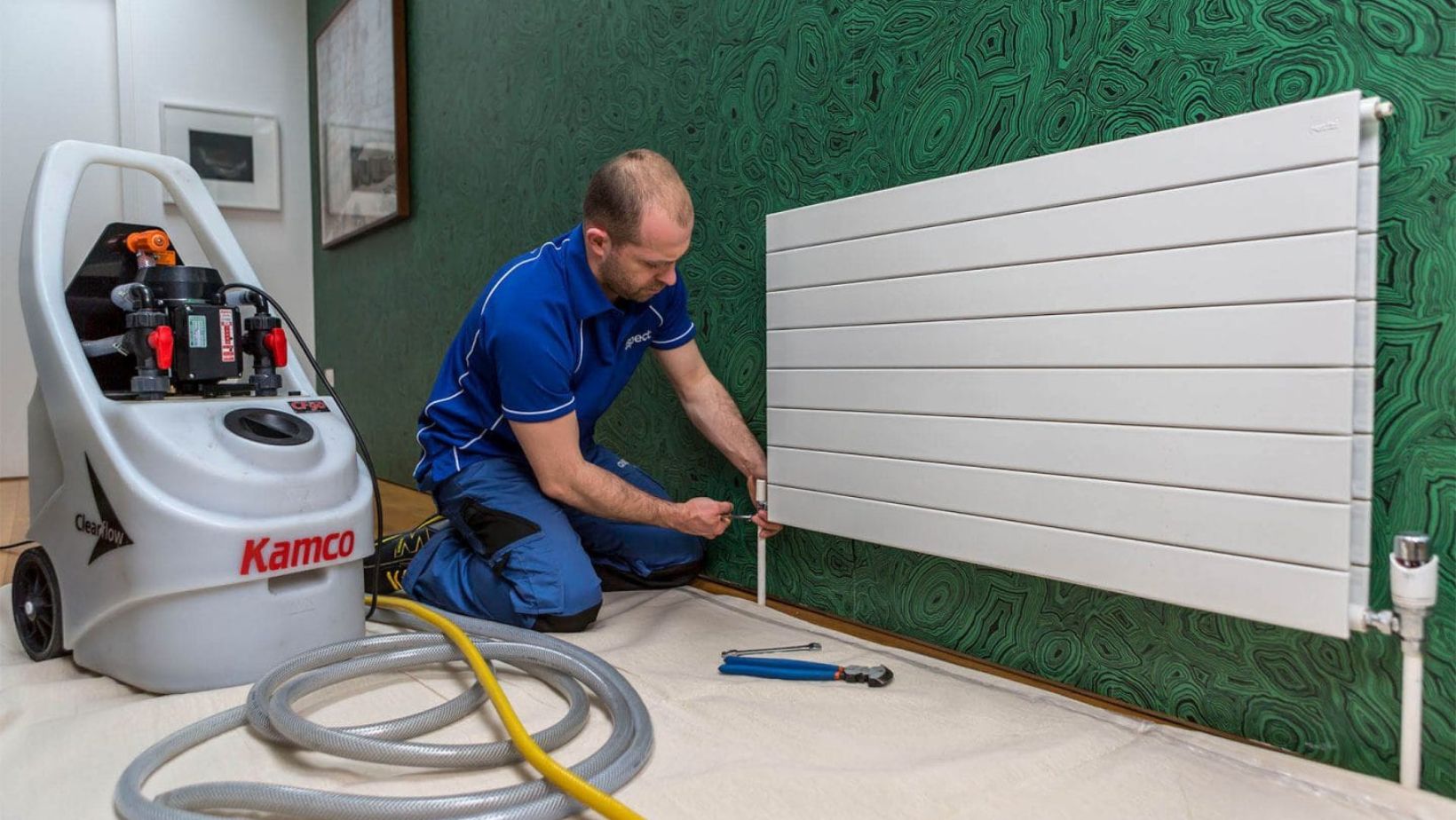
The process begins with a Gas Safe engineer attaching a powerful pump to your heating system.
This pump will then circulate a strong cocktail of cleaning chemicals throughout the system at high velocity but under low pressure, dislodging any accumulated sludge, rust, and debris in the process.
The location where the pump is attached depends on your boiler type.
For a combi boiler, the pump attaches via the pump head. For a system boiler, it connects via the circulation pump.
How Long Does a Power Flush Take?
The duration of a power flush varies based on the size of your heating system, the number of radiators in your property, and the extent of contamination.
However, a typical power flush usually takes around a day to complete.
How Often Should You Power Flush Your System?
The frequency with which you should power flush your system depends largely on the age and condition of your heating system.
A new system may not require a power flush for eight years or more, while an older system might benefit from a power flush every five to six years.
It’s also important to note that certain events may trigger the need for a power flush, regardless of the age of your system.
For example, if you’re installing a new boiler onto an old heating system, most boiler manufacturers recommend a power flush to ensure the new boiler isn’t contaminated by old system debris.
If you’re noticing any signs of blockages or inefficiency in your heating system, such as cold spots on radiators, unusual boiler noises, or discoloured water when you bleed the radiators, it’s a good idea to consult with a Gas Safe engineer, who can assess whether a power flush would be beneficial.
How Much Does a Power Flush Cost?
The cost of a power flush can vary significantly depending on several factors, including the size of your heating system, the number of radiators in your property, and your geographical location.
On average, you can probably expect to pay between £300 to £800 for a professional power flush.
While it may seem like a significant investment, a power flush can potentially save you money in the long run by improving the efficiency of your system, reducing your energy bills, and prolonging the lifespan of your boiler and radiators.
Can you do a Power Wash Yourself?

While it might be tempting to attempt a powerflush yourself, this task is best left to professionals.
Not only does a powerflush require specific knowledge and equipment, but the procedure itself can also be messy.
Additionally, if any issues arise during the process, an experienced Gas Safe engineer is best placed to address them promptly and safely.
Moreover, your boiler manufacturer’s warranty might become void if a powerflush is not carried out by a certified professional.
Therefore, it’s best to arrange for a powerflush to be conducted by a professional to ensure it’s done correctly and without causing damage to your system.
Alternatives to Power Flushing
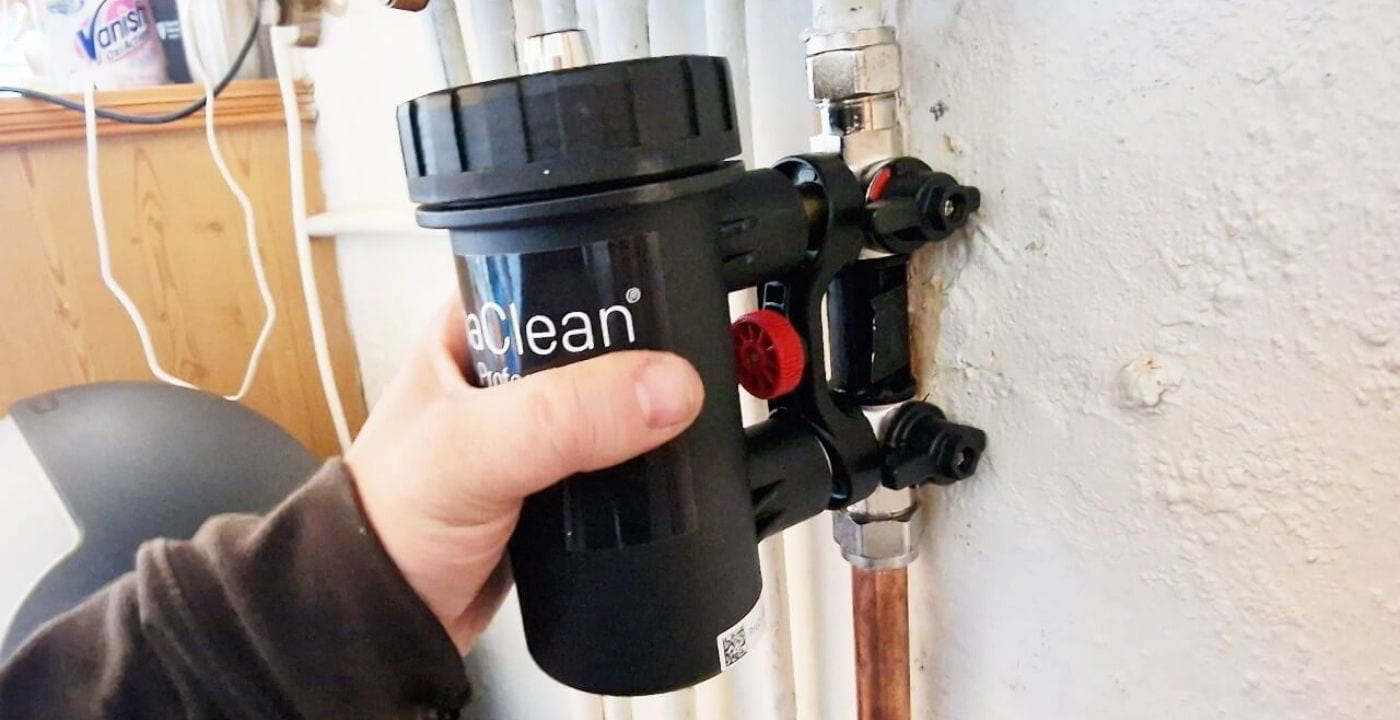
While power flushing is an effective method for removing debris and improving the efficiency of your heating system, it’s not the only solution available.
There are several alternatives to power flushing that might be more suitable in certain situations.
Chemical Flushing
This process also involves circulating cleaning chemicals through the heating system, but it typically uses a less powerful pump and is not as thorough as a power flush.
Chemical flushing can be an effective solution for mildly dirty systems or as a preventive measure to maintain system efficiency.
Magnetic Filters
Magnetic filters are another alternative. These devices are installed into your heating system and use magnets to attract and capture sludge and debris.
They can be an effective long-term solution for preventing system blockages, although they do require regular cleaning to remain effective.
Water Treatment
This involves adding special chemicals to the system water that help to prevent corrosion and limescale build-up.
These chemicals can be a good preventive measure when used alongside regular servicing, but they may not be sufficient to restore system performance if there’s already a significant build-up of debris.
In all cases, it’s always a good idea to consult with a Gas Safe engineer to determine the most suitable solution for your specific situation and needs.
Frequently Asked Questions (FAQs)
How do you know if you need a power flush?
Several signs can indicate your heating system could benefit from a powerflush.
These include frequent need to bleed radiators, cold spots on radiators, a slow heating system, discoloured water when you bleed radiators, an unusually noisy boiler or heating system, and radiators that fail to heat up.
Is a power flush messy?
Not to beat about the bush, it can be.
But while a power flush is not a totally clean operation due to the sludge and debris it removes, a professional engineer will take measures to minimise any mess.
That said, it’s always a good idea to be prepared for some cleaning up afterwards.
If you attempt a power flush yourself and you are not qualified or properly trained then things could get very messy, very quickly.
Does power flushing really work?
Yes, power flushing can significantly improve the efficiency of your heating system by removing sludge, rust, and debris.
These contaminants can cause blockages and reduce the effective flow of water in the system, leading to less efficient heating and potential damage.
Conclusion
The power flush central heating process is an essential aspect of maintaining the efficiency and lifespan of your boiler and heating system.
This deep-clean procedure helps prevent boiler breakdowns, improve radiator performance, and could save you money on your energy bills.
While a power flush is not a DIY task, it’s a standard operation carried out by Gas Safe engineers that can give your heating system a new lease of life.
If you carry out regular services and power flushes but your boiler is still underperforming, it may be time for a new one.
This blog was written in collaboration with Eddie Scoffin, the founder of Boiler Choice. Eddie has been installing boilers for over a decade. With a passion for excellence and customer satisfaction, Eddie’s leadership and expertise have been instrumental in the success of Boiler Choice. His commitment to making the boiler installation process hassle-free for customers has earned him a respected reputation in the industry.
Updated on August 18, 2023


